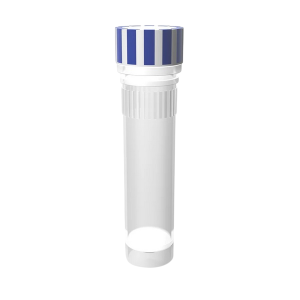IBI Scientific RPM-221 Recombinant Mouse Protein BAFF 20.6 kDa 25 ug
- Specification
- Overview
- Customers Also Bought
- Your Recently Viewed Items
- Reviews

Overview
Recombinant Mouse BAFF Protein (20.6 kDa)
The recombinant mouse BAFF (B-cell Activation Factor) protein is a naturally folded and post-translationally modified protein expressed in the Pichia pastoris (yeast) system. This advanced expression system ensures proper protein folding and modifications, producing bioactive proteins that closely mimic their native forms. Unlike traditional E. coli systems, Pichia pastoris delivers proteins that are completely endotoxin-free and purified without HIS-TAGS or other tags, making them ideal for applications requiring high purity and functionality.
The recombinant BAFF protein belongs to the tumor necrosis factor ligand family, which includes 19 cytokines sharing sequence, structural, and functional similarities. As an essential component of the immune system, BAFF plays a critical role in the activation, proliferation, and differentiation of B cells, making it a valuable resource for research and experimental applications.
No Endotoxins, TAGS, and Carrier-Free
The production process for IBI recombinant proteins ensures they are free from endotoxins and any purification tags, preserving their integrity and making them suitable for sensitive experiments. This particular BAFF protein has a predicted molecular weight of 20.6 kDa and is supplied in a lyophilized form to maintain stability during transport and storage. Researchers can reconstitute the protein in sterile PBS with at least 0.1% carrier protein, such as BSA or cell assay media, for optimal use.
The Pichia pastoris expression system ensures that proteins undergo proper folding and post-translational modifications. This natural folding process enhances bioactivity, creating proteins that closely resemble their host forms and function effectively in research settings. These characteristics make the recombinant BAFF protein an invaluable tool for cell culture, BAFF ELISA standards, and Western blot controls.
The BAFF protein is shipped without a carrier protein and is manufactured under stringent quality control standards. With its wide applicability and superior performance, it supports cutting-edge research into immune function and B cell biology.
The IBI recombinant mouse BAFF protein is produced in the USA, ensuring high-quality manufacturing standards. Designed to meet the needs of researchers, this product delivers superior performance in a range of experimental and diagnostic settings.
Technical Information:
What is an acceptable carrier protein for recombinant protein reconstitution?
A carrier protein is an additional protein added to the lyophilized recombinant protein during reconstitution to increase the stability of the diluted recombinant protein during storage, freezing, and use.
Bovine Serum Albumin (BSA) is the most common carrier protein used for recombinant protein reconstitution. However, if working with bovine recombinant protein, use a non-bovine carrier protein such as Equine Serum Albumin (ESA).
If using the recombinant protein for in vitro cell culture stimulation, it is often useful to reconstitute the recombinant protein directly in the complete cell culture medium containing serum or other acceptable carrier protein instead of a BSA/ESA solution.
How do I reconstitute the recombinant protein?
Most of the recombinant proteins can be reconstituted in sterile phosphate-buffered saline with 0.1% carrier protein, which is most commonly Bovine Serum Albumin (BSA).
If protein vial is left unopened, it can be stored at room temperature or -20°C for up to 12 months.
Once protein is open and reconstituted, it must be stored at -20°C and is viable for up to 3 months.
Avoid repeated freeze/thaw cycles as this could cause denaturation of proteins.
Typically, 100 µL is an acceptable reconstitution volume for 5 µg and 25 µg vials of recombinant protein. IBI's 5 µg and 25 µg vials have a maximum volume of 500 µL.
Typically, 1 mL is an acceptable reconstitution volume for 100 µg vials of recombinant protein. IBI's 100 µg vials have a maximum volume of 2 mL
What concentration of carrier protein is required for reconstitution?
The concentration of carrier protein should be at least 0.1% in the final solution. Additional carrier protein can be used, if desired. Typically, a 0.1-10% BSA solution in 1X PBS is an acceptable reconstitution solution.
What concentration is the recombinant protein upon reconstitution?
The concentration of recombinant protein is dependent on the reconstitution volume. For example, if reconstituting 5 µg of recombinant protein in 100 µL carrier protein solution, the concentration is 5 µg/100 µL or 50 µg/mL
What is the activity of the recombinant protein?
IBI recombinant proteins are sold in units of micrograms (µg).
The recombinant protein is quantified using the BCA Assay which favors the customer in terms of amount of protein. The BCA assay is not perfect, but at least it is standard for all proteins.
Volume: 25 ug
For more information, please see Specification Sheet

